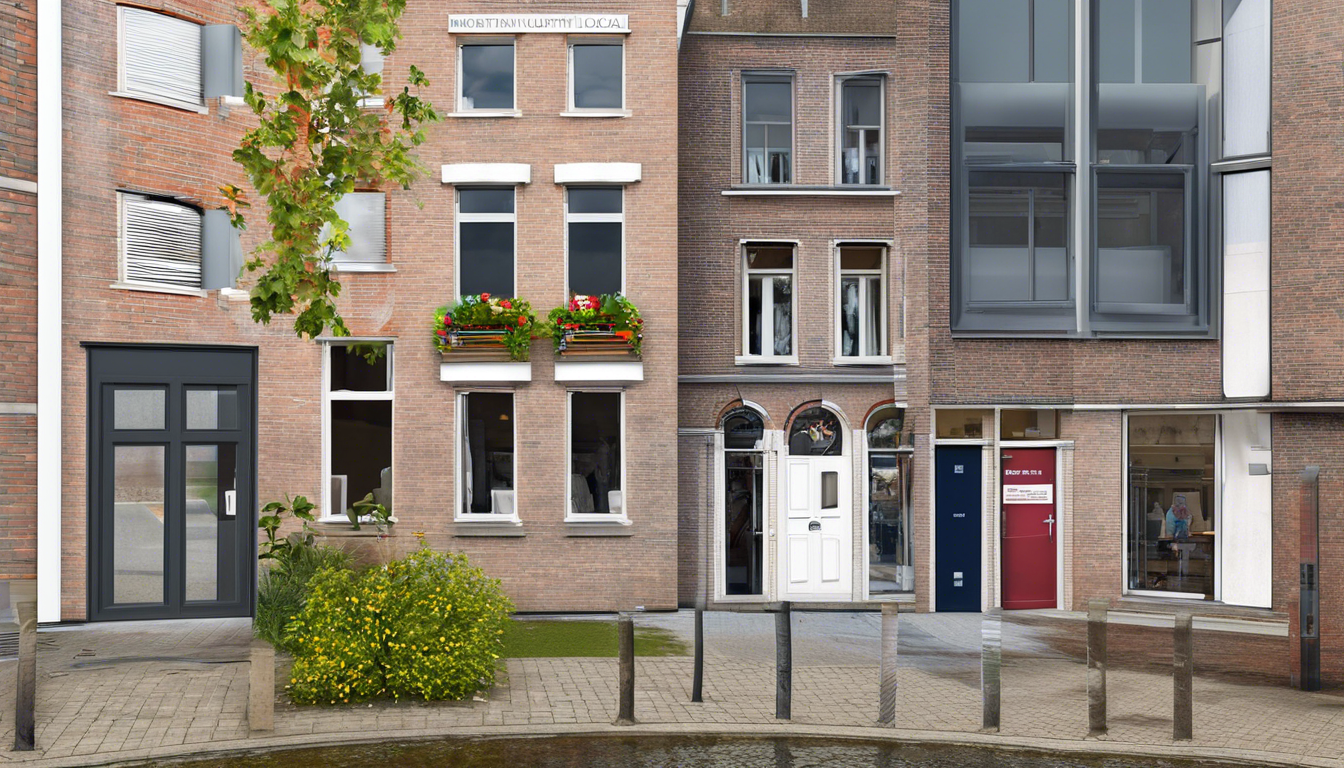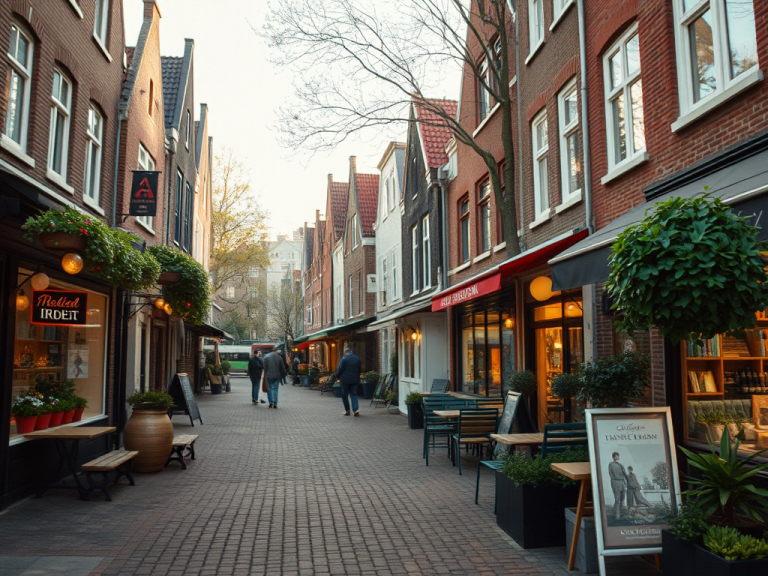How To Register With Your Local Municipality In The Netherlands

Understanding the Registration Process with Your Local Municipality in the Netherlands
Moving to a new country can be exciting but also overwhelming. If you’re planning to live in the Netherlands, one of the first tasks you’ll need to tackle is registering with your local municipality. This process is essential for getting the right paperwork to settle down comfortably. Here’s a step-by-step guide that will help you understand how to register effectively.
Why Registration is Important
Registering with your local municipality is not just a bureaucratic formality; it gives you access to various public services. Once registered, you can:
- Obtain a citizen service number (BSN), which is necessary for tax and healthcare.
- Open a bank account in the Netherlands.
- Sign up for health insurance.
- Enroll in schools or educational programs for your children.
Your registration helps the municipality manage resources better and ensures you are counted in their population statistics.
Steps to Register with Your Municipality
The registration process can vary depending on the municipality, but generally, you will need to follow these steps:
- Prepare Your Documents:
- A valid passport or ID card.
- Your residence permit (if applicable).
- Proof of address, such as a rental contract or utility bill.
- Your birth certificate (translated into Dutch, English, French, or German, if necessary).
- Make an Appointment: Many municipalities require you to schedule an appointment online. Visit your local municipality’s website to find the booking system.
- Visit the Municipality: On your appointment day, bring all your documents. Be prepared to fill out a registration form and answer some questions about your residency.
- Receive Your Citizen Service Number (BSN): After registration, you will receive your BSN, which is crucial for living in the Netherlands legally.
- Check Your Registration Online: Some municipalities allow you to verify your registration status online. It’s a good idea to do so to ensure everything is correct.
What to Expect During Your Visit
When you visit the municipality, the staff will guide you through the process. They may ask questions about your reason for moving, your work situation, and how long you plan to stay. It’s normal to feel a bit nervous, but remember that they are there to help you. If you need assistance with language, bring a friend who speaks Dutch or ask if translation services are available.
Tips for a Smooth Registration Process
To make the registration process as smooth as possible, consider the following tips:
- Double-Check Requirements: Each municipality may have slightly different requirements. Make sure to check their official website before your appointment.
- Fill Out Forms Ahead of Time: If you can download forms from the website, complete them before your appointment to save time.
- Arrive Early: Arriving a little early will help you reduce any last-minute stress.
- Ask Questions: If you’re unsure about anything during your visit, don’t hesitate to ask. The staff is there to assist you.
After Registration: What Comes Next
Once you have registered and received your BSN, there are a few essential steps to follow:
- Set up your Dutch bank account to manage finances effectively.
- Purchase health insurance within the first four months of your registration.
- Explore local services and amenities, including public transport options and community programs.
This will help you transition smoothly into your new life in the Netherlands.
The registration process with your local municipality in the Netherlands is a straightforward yet crucial step. By preparing your documents, scheduling your appointment, and following these tips, you can make this important task easier, allowing you to focus on enjoying your time in this beautiful country.
Essential Documents Needed for Municipal Registration
When you move to the Netherlands, one of the first steps you need to take is to register with your local municipality. This is vital for accessing various services and ensuring you are compliant with local laws. Having the correct documents ready can make this process smoother. Below is a detailed overview of the essential documents you need for municipal registration.
Proof of Identity
Your identification is the most critical document needed for registration. You must provide a valid proof of identity. This can be one of the following:
- Passport
- National Identity Card
- Residence Permit (if applicable)
Make sure that your ID is not expired, as an up-to-date document is necessary. If you’re registering with family members, each adult will need to present their identification as well.
Proof of Address
You will also need to show where you live. This is often documented through a rental contract or a property deed. Typically, acceptable documents include:
- Rental agreement signed by both parties
- Proof of ownership, such as a property deed
- A recent utility bill that includes your name and address
When you submit these documents, ensure that your name matches the name on the proof of address.
Birth Certificate
If you are moving to the Netherlands with children or if you are registering yourself for the first time, you’ll need a birth certificate. Here’s what to keep in mind:
- The certificate should be in Dutch, English, French, or German. If it is in another language, you may need to have it translated.
- Some municipalities may ask for an official extract from the birth registry.
Having a certified copy can be beneficial, as it provides added assurance that the document is official.
Marriage Certificate or Partnership Registration
If you are married or in a registered partnership, bringing this documentation is important, especially to register your spouse or partner. Documents required include:
- Marriage certificate (in one of the accepted languages)
- A registered partnership certificate
Much like the birth certificate, if your marriage certificate is in a language other than Dutch, English, French, or German, an official translation may be required.
Any Additional Relevant Documentation
Depending on your individual situation, you may need additional documents. Here are some examples:
- If you are a student, proof of enrollment in a local educational institution may be required.
- For expats coming for work, a work contract or a letter from your employer may also be relevant.
- Documents proving your right to reside in the Netherlands if you are not coming from a country in the EU or EEA.
Make sure to check with your local municipality for specific requirements, as the need for additional documentation can vary.
Visiting the Municipality Office
After gathering all your documents, you can make an appointment at your local municipality office. It’s advisable to check if you can register online, as many municipalities are modernizing their processes. When you arrive:
- Bring all your original documents and copies, if needed.
- Be prepared to answer questions about your stay and residence.
- Allocate enough time for the process as it may take a while, especially if there are many people registering on the same day.
Understanding the documents needed for municipal registration can take away some of the stress associated with moving to a new country. You want to ensure everything is in order for a smooth transition into your new life in the Netherlands. Keep these essential documents handy, and you’ll be well prepared for your visit to the municipality office.
Step-by-Step Guide to Completing Your Registration Online
Registering online with your local municipality in the Netherlands is a straightforward process, but it’s essential to follow the steps carefully. This guide will walk you through each part of the registration process, ensuring you get it right the first time. Follow this guide closely to avoid any hiccups along the way.
Check Your Eligibility
Before you begin the online registration process, determine if you are eligible to register. In the Netherlands, all residents must register with their local municipality. This includes:
- Citizens moving from another country
- Dutch nationals moving within the Netherlands
If you are a non-EU citizen, you may also need to meet specific conditions related to your residence permit.
Gather Necessary Documents
To register online, you will need several important documents. Having everything prepared in advance can streamline the process. Here’s a list of what you’ll need:
- Valid identification (passport, ID card, or residence permit)
- Proof of your new address (rental contract, utility bill, or purchase deed)
- Any birth or marriage certificates, if applicable
- Your Citizen Service Number (BSN), if you already have one
Access the Municipality’s Website
Next, navigate to the official website of your local municipality. You can easily find this by searching for your municipality’s name followed by “gemeente” (municipality in Dutch). Once on the website, look for the section related to “registering as a new resident” or “inschrijven.”
Log In or Create an Account
To proceed, you may need to log in or create a new account. Most municipalities use DigiD, a digital identification system in the Netherlands. If you already have a DigiD, use it to log in:
- Go to the DigiD website
- Enter your username and password
- Follow prompts to verify your identity if necessary
If you don’t have a DigiD yet, you’ll need to register for one. This process includes verifying your identity with your BSN and can take up to five working days.
Fill Out the Registration Form
Once logged in, find the online registration form. Carefully fill this out with accurate information. Pay special attention to:
- Your full name
- Your current address
- Date of birth
- Nationality
This form may also ask for information about your family members if they are moving with you. Make sure everything is correct to avoid complications later.
Upload Required Documents
The next step involves uploading the necessary documents. Use clear, high-resolution images of your ID, proof of address, and any additional documents. Ensure they are in the required file format, typically PDF or JPEG.
Submit Your Application
After completing the form and uploading your documents, review everything for accuracy. Once you’re satisfied, submit your application. You should receive a confirmation email promptly, indicating the municipality has received your request.
Await Confirmation
The municipality will process your application, which may take a few days. During this time, you may be contacted for additional information or clarification. Be responsive to any requests to ensure a smooth registration process.
Receive Your Registration Confirmation
Once your registration is approved, you will receive an official confirmation from the municipality. This confirmation will include your registration details and, if applicable, your Citizen Service Number (BSN). Make sure to keep this for your records, as it is crucial for various official matters.
Updating Your Registration
If you change your address, you must update your registration promptly. The process is the same—log into your municipality’s website, fill out the changes in your information, and submit any new documents required.
By following this guide, you can navigate the online registration process with confidence. Being well-prepared will save you time, ensuring that you settle into your new home in the Netherlands smoothly.
Common Mistakes to Avoid When Registering with Local Authorities
Registering with your local authorities is an essential step when moving to the Netherlands. It can be a straightforward process, but many newcomers make common mistakes that can lead to complications later on. Here are some of the pitfalls you should avoid to ensure a seamless registration experience.
One of the most frequent mistakes is not gathering required documents beforehand. Before you head to the municipality, make sure you have all necessary paperwork. Here’s a list of the essential documents you may need:
- Valid identification: A passport or national ID card.
- Proof of address: A rental contract or a statement from your landlord.
- Passport photos: Pictures that meet the Dutch requirements.
- Birth certificate: Depending on your nationality, this might be necessary.
- Marriage certificate: If applicable, for those registering as a couple.
Another common oversight is failing to make an appointment. Many municipalities in the Netherlands require you to book an appointment in advance to register. If you walk in without an appointment, you may have to wait or, worse, be turned away. Always check the municipality’s website for their guidelines on appointments.
Missing deadlines can complicate your registration process. You are typically required to register within five days of moving into your new home. This timeframe might vary, depending on your local municipality. If you don’t register on time, you may face fines or difficulties in accessing essential services like healthcare and education.
Not being aware of language barriers is another challenge newcomers face. Most local authorities in the Netherlands conduct business in Dutch. If you are not proficient in the language, it might be helpful to bring someone who can assist you. Another option is to contact the municipality beforehand to find out if they provide services in English or other languages.
Forgetting about your previous registration can also be a problem. If you’re moving from another country, ensure you deregister from your previous address. You usually need to prove that you’ve done this when registering in the Netherlands. Having unresolved registrations can lead to confusion or complications down the line.
When registering with local authorities, you must also be honest about your circumstances. Providing incorrect or misleading information is a mistake that can lead to legal issues. Always ensure that the details you provide, like your income and living situation, are accurate.
Here are a few additional tips to consider:
- Stay organized: Keep all your documents in one place for easy access.
- Use online resources: Check your municipality’s website for guidelines on registration and required documentation.
- Ask questions: Don’t hesitate to ask for clarification if you’re unsure about any aspect of the process.
It’s also wise to familiarize yourself with local regulations and requirements that may differ from those in your home country. Every municipality may have its own unique set of rules, so understanding these can save you time and avoid frustration.
Don’t overlook the importance of follow-up. After registering, make sure to confirm that your information has been correctly entered. It’s a simple step, but it could prevent future complications regarding your residency status or access to local services.
Registering with your local authorities in the Netherlands doesn’t have to be a cumbersome task. By avoiding these common mistakes, you’ll position yourself for a smoother transition into Dutch life. Being well-prepared, understanding the importance of timely registration, and being aware of local requirements are critical components of this vital process. Follow these guidelines, and you’ll find yourself settling into your new home without unnecessary stress.
The Importance of Maintaining Your Municipal Registration in the Netherlands
Municipal registration is an essential part of living in the Netherlands. Your registration connects you to the local government and provides numerous benefits that make your life easier and more secure. Understanding the importance of maintaining this registration is crucial for anyone residing in the country. Below, we’ll explore the key reasons your municipal registration matters and how you can ensure it stays up to date.
Establishing Your Legal Identity
When you register with your local municipality, you create an official record of your identity. This includes important information such as your name, date of birth, and address. This registration is vital for:
- Obtaining a Dutch Citizen Service Number (BSN), which you need for tax and social security purposes.
- Accessing various government services, including healthcare and education.
- Voting in local elections and participating in community activities.
Compliance with Dutch Law
In the Netherlands, it is a legal requirement to register with your local municipality if you are living there. Failing to register can lead to:
- Penalties or fines from the local government.
- Challenges in accessing crucial services, such as opening a bank account or applying for residence permits.
Access to Social Services
Your municipal registration allows you to utilize social services in the Netherlands. These services include:
- Healthcare coverage, which requires proof of residence.
- Subsidies and financial assistance tailored to residents, such as housing allowances.
- Local community programs that benefit your neighborhood.
By maintaining your registration, you ensure you can access these essential services in a timely and efficient manner.
Facilitating Everyday Activities
Registration can streamline daily activities. When you’re registered, it’s easier to:
- Open a bank account, which typically requires proof of address.
- Sign up for utilities like gas, electricity, and water.
- Register your children at local schools and daycare centers.
Impact on Housing
Many rental contracts require you to be registered at the address you occupy. Not maintaining your registration could lead to complications, such as:
- Problems with your landlord, who may require proof of registration.
- Challenges in securing a new rental agreement in the future.
Moreover, your municipal registration is often checked during the application processes for rental properties, as landlords want to ensure you meet local residency requirements.
Adapting to Changes in Life
Life is always changing, and keeping your registration current is important when you move, change your name, or alter your family status. Not updating your registration may lead to:
- Miscommunication with local authorities regarding taxes and legal obligations.
- Lost access to certain benefits tailored to your family’s current situation.
Staying Connected with Your Community
Your municipal registration connects you with local initiatives and organizations. It allows you to:
- Receive newsletters and information about community events and resources.
- Engage in neighborhood activities that help foster community spirit.
Being actively registered in your local municipality means you’re not just a resident but a participant in your community. This aspect enhances your experience living in the Netherlands.
Managing Your Registration
To maintain your municipal registration effectively, it’s essential to:
- Provide timely updates to your local municipality whenever your address or personal information changes.
- Stay informed about municipal regulations regarding registration, especially if you plan to move.
By doing so, you’ll ensure that you meet legal obligations and enjoy all the benefits your municipality has to offer.
Maintaining your municipal registration in the Netherlands is not just a bureaucratic task; it opens doors to various essential services and safeguards your rights as a resident. With the right knowledge and proactive approach, you can navigate life in the Netherlands smoothly and confidently.
Conclusion
Navigating the registration process with your local municipality in the Netherlands is a pivotal step for newcomers and residents alike. Understanding the stages involved, from gathering essential documents to completing your registration online, helps ensure a smooth transition to living in the country. Having the right paperwork ready—such as identification, proof of residence, and any necessary visas or permits—can save you time and hassle.
Completing your registration is straightforward if you follow the step-by-step guide provided. However, being mindful of common mistakes, like incorrect address information or missing documentation, can make all the difference in achieving a successful registration experience. Taking the time to avoid these pitfalls means you’ll save yourself from potential delays and frustrations.
Once registered, remember that maintaining your municipality registration is just as important. Updates in personal information, such as changes in residence or family status, should always be reported in a timely manner to avoid complications. A well-maintained registration not only ensures compliance with local laws but also enhances your experience as a resident in the Netherlands.
By paying attention to these details and taking a proactive approach, you set yourself up for a rewarding and fulfilling time in the Netherlands. Whether you’re here for work, study, or permanent residency, understanding the local registration process can empower you to fully embrace your new life. Proper registration reflects your commitment to being an engaged member of the community and allows you to access services and benefits that enhance your experience in this beautiful country.




